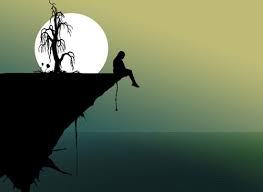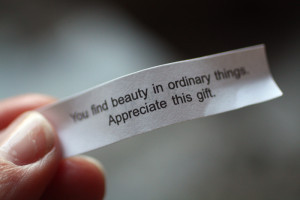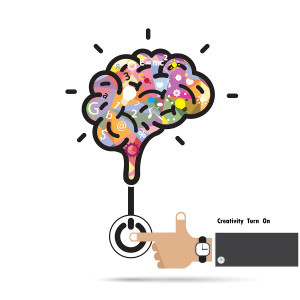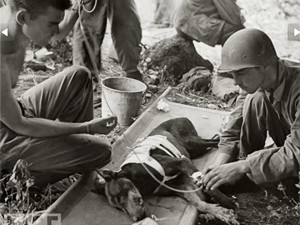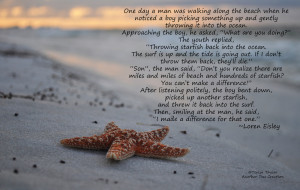Lin Wilder's Blog, page 56
August 13, 2015
The Journey: A Few Insights
The lure of the journey is an ancient one. Whether striking out to head toward an unexplored west, risking a small fleet of boats to see what is on the other side of the earth or sending spaceships into the sky to discover other life in the majestic universe, the need to explore can be as fierce as a craving. But we learn, finally, that the riskiest, the most searing trip is the one we take when we at long last, stop. Whether through exhaustion or merely empty wallets, endless travel reveals more or less, more of the same. Even for those committed to the extremes, just how many mountains can be climbed before we can say enough?
Long ago, when my shock at the seriousness of my consideration of the Catholic religion resulted in a conversation with a man who was a spiritual director, a term I had never before encountered, the spiritual director told me that the journey was always a masculine inclination and that the decision to stop and call a place home, always feminine. I wanted to feel baffled by his observation, I needed to resist and discard it. But I knew what he said was true.
Each year we Benedictine Oblates read the seventy- three chapters of the Rule of Benedict three times. Today completes Chapter Fifty-Eight where Benedict discusses the process by which novices are accepted into the monastery, the arduous process by which they are to determine if they can embrace the vows of the Benedictine: Stability, Fidelity to monastic life and Obedience. Stability- the word beckons today just as it did when I first heard it in this context. But first, some explanation of that long ago conversation about journeys.
The man had replied to an explanation of a search I had been conducting for a number of years. The exploration had consisted of numerous Christian and a few non-Christian denominations and most recently, trips to Delphi, Greece and Kyoto, Japan. Although I did not use these words, it was a search for the sacred. I felt that I had found what I’d been looking for and was terrified. And also an answer to the why of recent major upheavals in my personal and professional life, albeit a frightening one.
In reflecting on the masculine nature of journeys, I can understand that fear that long-ago me felt, the astonishment at the fact that it was over. I had found what I had been searching for and the alarm of commitment, of stability rang as a three-alarm tone.
I knew the word stability as a medical term; vital signs stable. The Benedictine use of stability invokes the day-to-day often hum-drum battles of being civil when we don’t want to be, of remaining in a dispute rather than withdrawing to a safer place, one where we need not be authentic with ourselves and with others. Stability connotes enclosure; whether the enclosure of a monastery, family, faith or person hood. This is who I am; so very flawed, fragile and fearful but determined to be real.
The post The Journey: A Few Insights appeared first on Life In The High Desert.









August 7, 2015
A Sparrow Died Today
A sparrow died today. I was out very early this morning like I am usually to feed the birds, the fish and to water the flowers. A tiny sparrow sat on the concrete walkway. As I came down the steps from the porch, I talked to him, assuming that he was merely resting, that he would fly away as I approached. He trembled but did not fly away. In fact he didn’t move at all.
Fifteen minutes later after filling the feeders down where the Orioles like to eat in the back of the yard where the trees form huge protective canopies, I walked back up and was disappointed to see that the tiny bird was still there. What had looked like minor tremors now were rhythmic shudders. Ignoring the obvious, I scattered some bird seed around him and then when he made no move to eat it, I scattered a little more, closer to him.
For another fifteen minutes of watering the roses and the plants in the planters along the walkway, I avoided looking at the bird. Or at anywhere close to where he sat, quite clearly dying. And I began to pray for this tiny being, in hopes that I was wrong, that he was fine and would fly off momentarily, knowing that he wouldn’t.
When I did look back to him, it was because he’d moved. Initially I thought he was going for the food I’d scattered near him. But then he toppled over, first on his beak, then on his back and began to seize. His wings spread out and this tiny bird had what looked exactly like a grand mal seizure. I am sure it didn’t last more than a few seconds but it felt like so much longer while I watched, Unable to do one thing to comfort or console this puff of life that was being extinguished right before my eyes. Finally, he was still. I stood there for a while unable to do anything but stand motionless thinking about the preciousness and fragility of life, the inevitably and universality of death. The quiet silent suffering of this creature. And my little world was diminished; for those few moments, I understood that Gospel passage where Christ is almost admonishing his disciples:
“Are not two sparrows sold for a penny, and not one of them falls to the ground apart from your Father?”
The post A Sparrow Died Today appeared first on Life In The High Desert.









August 4, 2015
Thinking About Thinking
As a recovering bibliophile, I made a promise to myself to read each of the books purchased in the last decade or two and am now making my way through After Virtue by Alasdair MacIntyre. Despite the density of the philosopher’s prose, reading this book is bringing me back to a place I once knew well: thinking about thinking. I use the phrase not as sophistry but to go back to the years when we wondered just what is this life really about-my life, your children? And why do you and I think the way we do? Believe and decide what is right and what is wrong the way we do? Ultimately, what informs our beliefs, values and morality?
While driving home from Mass yesterday morning, I listened to Julie James interview George Takei about his upcoming show Broadway show Allegiance. The former Star Trek actor who played Sulo is apparently a gay activist and during the interview with Julie James, Takei explained his joy at the Supreme Court ruling about gay marriage in terms of equality. Finally, he declared, gays have equality with non-gay Americans.
The notion of marriage between two men or two women is something which both attracts and repels me. The attraction is a basic one and has to do with a fundamental respect for love between any two persons while the repulsion is fundamental as well: Husband connotes man while wife denotes a woman. Referring to a woman as husband or a man as wife broadcasts something radical. When Takei spoke to Julies James about the Supreme Court decision about gay marriage in the context of equality and of rights, I understood what I had not before appreciated.
To the citizens of the world up through about half-way through the nineteenth century, natural law was both the order and the rule. Whether taught as the ten commandments of God or the Torah, Koran or Buddhism, there was fundamental cultural agreement on the order of things, on what constituted morality, ethics and things which could be trusted as true. This was so, MacIntyre informs his readers in After Virtue , because there was agreement on the purpose of human persons : beings with an end, a teleology, a life after this one. In the western world, the world view was Aristotelian or constituting a philosophy called Scholasticism. With the enlightenment in the mid-eighteen hundreds, the break with divine law began as man decided he was autonomous, independent of the superstition and ignorance of the former Christian oppressive ages. And the age of Scholasticism was ended, summarily . Admittedly, these previous sentences are a truncated, almost vacuous summary of MacIntyre’s theory but will perhaps illuminate the reason for the chaos of modern moral discourse, if only slightly.
I recall using those words while writing my dissertation. In describing the era which preceded the ‘modern era’, I used superstitious and magical practices to describe the Christian rites and devotions of which I was completely ignorant and think I can dimly understand how we got here. How we arrived in a culture where all things are considered to be in the context of equality, rights and entitlement, including my nature as a woman or as a man. And that because there is no longer agreement on the origin and teleology of man, of conscience and of morality, there can be no real discourse, merely shrill arguments disguised as discourse.
Alasdair MacIntyre wrote After Virtue as a defense of his anti-scholastic training in attempts to justify his Marxist beliefs. In so doing, he destroyed the first manuscript and began again, in defense of Aristotelian philosophy and along the way, converted to Catholicism.
The post Thinking About Thinking appeared first on Life In The High Desert.









July 26, 2015
Thomas More and King Henry
“I die the king’s good servant, and God’s first.”–Thomas More
“Blessed Thomas Moore is more important at this moment than at any moment since his death, even perhaps the great moment of his dying; but he is not quite so important as he will be in about a hundred years time. He may come to be counted the greatest Englishman, or at least the greatest historical character in English history. For he was above all things historic; he represented at once a type, a turning point and an ultimate destiny. If there had not happened to be that particular man at that particular moment, the whole of history would have been different.”
–G. K. Chesterson, “A Turning Point in History”
Decades ago in an undergraduate English class, I was introduced to Thomas Moore through the eyes of another atheist, screenwriter Robert Bolt. One of the more successful playwrights of the last century, Bolt wrote the screenplays for Lawrence of Arabia, Dr. Zhivago, and The Mission. But it was A Man For All Seasons for which he was best known.
We were assigned to read the two act play by the woman who ran the English department at the small Catholic college in Houston where I had been granted a scholarship, much to the amusement of friends and family because I had declared myself an atheist at eighteen. It was writing like this that seared and mesmerized my youthful idealistic soul:
Norfolk: I’m not a scholar, as Master Cromwell never tires of pointing out, and frankly I don’t know whether the marriage was lawful or not. But damn it, Thomas, look at those names… You know those men! Can’t you do what I did, and come with us for friendship?
More: And when we stand before God, and you are sent to Paradise for doing according to your conscience, and I am damned for not doing according to mine, will you come with me, for friendship?
Cranmer: So those of us whose names are there are damned, Sir Thomas?
More: I don’t know, Your Grace. I have no window to look into another man’s conscience. I condemn no one.
Cranmer: Then the matter is capable of question?
More: Certainly.
Cranmer: But that you owe obedience to your King is not capable of question. So weigh a doubt against a certainty — and sign.
More: Some men think the Earth is round, others think it flat; it is a matter capable of question. But if it is flat, will the King’s command make it round? And if it is round, will the King’s command flatten it? No, I will not sign.
Bolt’s fascination with Thomas More derives from the extensive research he did on the man. A man, Bolt explains in his Preface to A Man For All Seasons, who did not race to martyrdom unlike most of the saints revered by the church rejected by Bolt. Quite the contrary. More was a man of law and a loyal subject of the King of England, considering Henry to be a friend. Married with four children whom he loved dearly, Thomas More was a lover of life, good food and fine wines. He was a humanist; a concept which in the sixteenth century, conveyed submission to God and his law. A man who did not want to die.
The years from 1529 through 1535 were years replete with attempted compromise. In 1529 Sir Thomas More was appointed Lord Chancellor of England; in 1535, More was beheaded for his treasonable refusal to sign the Act of Supremacy declaring Henry as Supreme Head of the Church of England and which validated Henry’s annulment from his marriage to Catherine of Aragon and remarriage to Anne Boyleyn. Over and over the statesman sought conciliation- a way to reconcile the rupture between his king and his faith; a way to prevent the schism between the Church and the King. Finally More persuades King Henry to accept his resignation as Lord Chancellor in hopes that the resignation could serve to recuse him from signing. Bolt’s play reveals a frightened, increasingly desperate man as he seeks a way out.
But More’s Catholicism was no obligation bounded by Sunday Mass and the sacraments; his faith defined his person-hood. As a young college student, I recall feeling envy for the clarity of this person portrayed by Bolt in his play. Feeling a profound desire for Something or Someone so great that were it to be taken away I would cease to exist, I developed a high regard for Thomas More all those years ago- a deep and real sense of who he had been and even of who I hoped to be.
In a futile attempt to help his beloved daughter Meg understand why he cannot sign the Act of Supremacy, the playwright writes this in Act ll of A Man For All Seasons:
MORE You want me to swear to the Act of Succession?
MARGARET “God more regards the thoughts of the heart than the words of the mouth.” Or so you’ve always told me.
MORE Yes.
MARGARET Then say the words of the oath and in your heart think otherwise.
MORE What is an oath then but words we say to God?
MARGARET That’s very neat.
MORE Do you mean it isn’t true?
MARGARET No, it’s true.
MORE Then it’s a poor argument to call it “neat,” Meg. When a man takes an oath, Meg, he’s holding his own self in his own hands. Like water. (He cups his hands) And if he opens his fingers then-he needn’t hope to find himself again. Some men aren’t capable of this, but I’d be loathe to think your father one of them.
MARGARET In any State that was half good, you would be raised up high, not here, for what you’ve done already. It’s not your fault the State’s three-quarters bad. Then if you elect to suffer for it, you elect yourself a hero.
MORE That’s very neat. But look now . . . If we lived in a State where virtue was profitable, common sense would make us good, and greed would make us saintly. And we’d live like animals or angels in the happy land that needs no heroes. But since in fact we see that avarice, anger, envy, pride, sloth, lust and stupidity commonly profit far beyond humility, chastity, fortitude, justice and thought, and have to choose, to be human at all . . . why then perhaps we must stand fast a little-even at the risk of being heroes.
MARGARET (Emotionally) But in reason! Haven’t you done as much as God can reasonably want?
MORE Well . . . finally . . . it isn’t a matter of reason; finally it’s a matter of love.
In the year 2000, then Pope John Paul ll declared St. Thomas More to be the “heavenly Patron of Statesmen and Politicians.”
The post Thomas More and King Henry appeared first on Life In The High Desert.









July 20, 2015
Ordinary Time
In the Christian Liturgy, today is the sixteenth Sunday in Ordinary Time. Ron Rolheiser writes that the phrase “ordinary time” is used for a dual purpose. First, to highlight the liturgical seasons of Christmas and Easter making us less likely to feel as if we ‘missed Christmas’ because of the endless distractions of daily life- too mired in preparation to take note of any meaning. Secondly, to make more perceptible the ocean of quiet miracles in which we swim: The smile of a stranger, touch of a loved one, a good cup of coffee.
We use the word ordinary to convey the commonplace, the lack of something special, the routine. And yet, quite often its opposite, is all too often, a crisis. Whether clothed in the fabric of sudden death, accident or loss, the extraordinary is frequently an event that changes everything in our life. An event which serves as a chronometer; ‘before the accident’ or ‘after she died.’
Rolheiser writes that we are given more than thirty weeks of ordinary time- more than 210 days to “meet the angels of routine, regularity, domesticity and predictability,” There are a plethora of ways to thwart our mindfulness of what David Stendahl-Rast calls the “special angels” which lurk within each hour of our daily lives. At times, it is unavoidable. There are people and situations which are ignored to our peril. But what of those hours robbed by anxieties that are not our own but those of another, those whose business it is to rob us of peace, of joy? Or hours wasted in activities which we know are not helpful to us? Hours that we’ll not have again?
Perhaps today could be a day in celebration of the ordinary. And then tomorrow. Eventually a willingness to revel in this hour right now could deliver the habit of rejoicing in the quiet miracle of breathing. Could produce that which each of all seven billion souls on this planet pursue: Happiness.
“Come away by yourselves to a deserted place and rest for while.”
Gospel of Matthew
The post Ordinary Time appeared first on Life In The High Desert.









July 7, 2015
How Is Your Heart Doing?
Many Muslim cultures have an intriguing way of greeting, ” Hello, how are you?” The English translation to the Persian greeting is “How is your heart doing at this very moment? At this very breath?” Head of Islamic Studies Omad Safi suggests that is what we mean when we say “How are you?” We mean to ask, “How is your heart?”
The reply is all too often and overwhelmed version of “I am so busy.” From gradeschoolers to retired Americans, many consider their lives with some variation of this declaration of busyness or what Safi calls “the disease of busyness.” We’re living in a culture which offers more time-saving devices that at any other time in human history. Rather than spending our time and energy seeking and transporting water, growing and harvesting food, caring for animals critical for transport and planting, cooking and cleaning which had been necessary in previous centuries, we spend the limited time we are given in our lives to do…what exactly?
The problem of deciding how to compose a life is not a new one. When I traveled alone to Delphi in the late nineties I stood in the ruins of the Oracle at Delphi thinking about her admonition to all seekers: Gnōthi Seauton or ‘Know Thyself’. Plato declared in his Aplogia, ‘The unexamined life is not worth living.’ And close to two thousand years later, Thoreau wrote, “It is not enough to be busy. The ants are busy. The question is: What are we busy about?”
But these are statements about meaning; about discovering the purpose of our lives, of learning just what we are called to be. Discerning the answer demands silence, solitude and a quiet mind. Features and conditions which are more easily said than achieved because the work required is stillness. Something man is never comfortable with. In these culture of doing, perhaps this disease of busyness, what a remarkable gift to be asked, “How is your heart?”
And what courage is necessary to reply, not in words of doing but being.
The post How Is Your Heart Doing? appeared first on Life In The High Desert.









July 4, 2015
Three Surprising Elements of Creativity
Creativity is something most of us cannot get enough of, right? Because each day we are placed in situations requiring us to be inventive, imaginative, innovative. Whether a stay- at- home- mom, engineer, salesperson, mechanic, or a writer, we are immersed in situations which require imaginative responses. Angry customers, bored kids, touchy husbands and new characters all entail innovative techniques and imagination.
Despite massive research into the creative process and about creative people, we’ve not yet located the source of creativity. Nor have we determined how the creative process is stimulated. But there are three surprising features of the creative process which may be useful.
Fatigue
Healthy skepticism
Experience
Perhaps like me you know the times when you know you are most productive. Logically then you schedule your most pressing challenges for those times when you are generally at your best. If possible.
But recent surveys have revealed that intuitive breakthroughs have occurred during times when people are tired, their minds the opposite of alert and focused. Rather, sluggish and just plain wiped out. Counter-intuitive, I know. If you ponder why this may be for a minute, you can come up with the same rationale as did the researchers. When we’re worn-out, we’re less prone to distractions. That foggy feeling can be a signal for the unconscious to reveal itself. A good thing because some of our imagination resides in our unconscious.
Healthy skepticism and experience need to be discussed together because I’m switching now to how we formulate opinions, make decisions and acquire knowledge. All rudimentary skills. But they have changed radically due to the massive amounts of information available to us .
We swim in an ocean of data, attitude and judgment. All prepared by others. Many of us are assaulted by them daily, perhaps hourly. You know this already but do you consider the profound influence of strangers on what, how and why you think and believe?
It was Friedrich Nietzsche who predicted the radical shift of discounting our own experience in favor of the expert. Remember him? Famous for quotes like this one: “God is dead. He choked to death on theology.” A favorite of mine many years ago.
Nietzsche classified knowledge into two categories: experienced based knowledge or “erfahrung” versus knowledge gained by reading, listening, watching or “wissen.” The philosopher predicted an increase in the worrisome trend he observed during the last half of the 19th century, (Nietzsche was dead by 1900). One where the value of experience based knowledge would be relegated as inferior to knowledge which was consumed, that is passively learned rather than experienced. One can only imagine his dismay if he were to time travel to the 21st century.
In summary, try these techniques to work out a conceptual muddle:
Forget about it until you’re exhausted. Let your unconscious off the reservation to see what will surface.
Develop a sense of healthy skepticism when reading, listening and watching.
Ramp up your trust in yourself, in your own experience. If the opinions of others contradict what you know, don’t listen.
The post Three Surprising Elements of Creativity appeared first on Life In The High Desert.









July 2, 2015
Max-Military War Dog
Like most writers, I do deep research about unfamiliar subjects. Actually, even familiar ones. The reason is simple. We want to get into the heads and hearts of our characters. And the sole way to do that is total immersion into their worlds. Only then can the person, albeit a fictional one, take shape enough to feel as if he or she were sitting next to you while you’re reading about him or her.
I had a good deal of trouble with one of the main characters in a recent book until I decided that he would be a Marine handler for a war dog. After reading six, maybe seven books about MWD, and a few more on recent canine research, my character took off and I had to scramble to keep up with him.
Most of us know next to nothing about dogs. Even if they belong to us.
Or about their capabilities.
Or about how they react to trauma.
Now that I’ve done all this research, I know enough to opine that the screenwriters, director and actors in Max got it right.
I haven’t read any of the reviews but will hazard a guess that most reviewers, like most people would regard some of the behaviors portrayed by Max in the movie as over the top. Like the desperate lunge for the dead body of his handler. Like the depression and ferocity directed at anyone other than his handler.
Most of us still have no idea of the astonishing capabilities of our four-legged friends. The Belgian Malinois playing Max got it right. Better than right. The dog is brilliant and beautiful.
I had only one criticism of the movie. At the end, during the several minutes of real film footage showing the history of war dogs and the Marine Corps starting with World War l, I waited to see films of Doberman war dogs during World War ll but there were none. That oversight was very disappointing.
The post Max-Military War Dog appeared first on Life In The High Desert.









June 30, 2015
Making A Difference

To leave our rural valley in northern Nevada, we drive for about thirty minutes. Upon turning north on the freeway, after about fifteen minutes or so, we pass a bulletin board on the left asking about one person making a difference. The caption is written over a huge image of Nelson Mendela. The other day I stared at the huge bulletin board and thought about a conversation about that very subject several years ago.
My husband John and I had agreed that we wanted to do more than write out a check to help the homeless. And Reno has a large number of homeless for a number of reasons.Uppermost among them, a fairly temperate climate for most of the year and proximity to San Francisco where the homeless receive benefits from the city.
It made sense to start with existing organizations which were set up to help the homeless in Reno. There are three. St. Vincent’s Dining Room, Reno Community Assistance Center and the Reno Gospel Mission. Each is located within a football stadium sized area in downtown Reno at the corner of 4th and Record streets.
For a year, maybe two, we volunteered at St. Vincent’s Dining Room, a mission of Catholic Charities and run by Ray Trevino. Ray has a deep love for his clients who by the end of the month can rise to 600 coming in daily for a hot meal after their monthly federal monies have been spent
During those years, we learned a good deal about Ray’s challenges and about the ‘culture’ of homelessness. But we wanted to understand more about these people and decided the only way to learn was hands on. So for another two or three years, we drove into Reno on weekends during the cold early mornings of Lent to hand out coffee and donuts to the homeless men and women standing or lying around 4th and Record Street. We handed out hundreds maybe thousands of cups of hot coffee and donuts. And talked to those willing to talk with us, listened, observed and learned. But it was the very first morning that the bill-board question of ‘can one person make a difference’ recalled.
During the ninety minute ride back home after the very first cold February morning that we did this, John asked how I felt. My mind was roiling with sensations, images and faces. Like the man from Salt Lake City whose hand had felt like ice when we shook hands. And the faces of the two contractors when John handed them his worn winter jacket and apologized for the rip. And the disappointment on the face of one lady who had arrived too late for a cup of hot coffee. I felt overwhelmed, beaten down by the magnitude of the needs, by the intimacy of what we had been doing for the last two hours. But most of all, by the knowledge that we had fixed nothing.
My husband smiled and then reminded me of the story of the starfish.
The post Making A Difference appeared first on Life In The High Desert.









June 22, 2015
Christ Asleep
The first time I actually thought about being in a fishing boat in a raging storm with Christ asleep on a cushion, was during a meditation given on that Gospel passage shortly after I converted to Christian Catholicism. The Legionnaire priest giving the meditation guaranteed my undivided attention because of the simple imagery he used when he applied this Gospel passage to my life; to the lives of each of us. To be fair, the Episcopalian priests of my childhood had most likely talked about this Gospel passage. But I had no recollection of it or of of any passage in the Bible, for that matter.
When a friend I’d met through Regnum Christi invited me to a Saturday morning ‘meditation’ , I was intrigued. This was the Gospel passage he chose. Probably because it was the passage for that weekend in the Christian Liturgy but I was too new to understand how any of this worked, still trying to pick up this brand new vocabulary of faith. Like meditation. In the Buddhist world in which I’d had some experience, meditation was something else entirely.
Despite the heavy Spanish accent of the priest, I was captivated from the very beginning of his talk. He was talking, it seemed to me, about a friend of his. An intimate friend and a faith which was both simple and convoluted. The priest’s expression was joyful and his smiles lit up the room. He was talking about who and what he loved and why he loved them.
That priest took me by the hand to climb into that boat, to sit there and see that these guys saw, feel what they felt: the terror and then the awe. His words created clear and vibrant images as he drew a picture of men who spent much of their lives on the water. Rough waters were part of the job; annoying but expected. To cause this much fear among these experienced men , these had to be humongous waves.
And yet here we have Christ asleep and on a cushion!
I recall the priest talking about our spiritual lives, comparing much of them to a canoe trip where the motion is constant yet serene. While we may not know exactly where we are going, we can see the land on both sides and view the trees and meadows as we slowly pass by. Faith is comfortable during those seasons. Trust is undemanding. Suddenly, without warning, our canoe reaches white water, class VI rapids; we are in very real danger. What happens then to our faith, to our trust, to our comfort with our God?
The post Christ Asleep appeared first on Life In The High Desert.

















